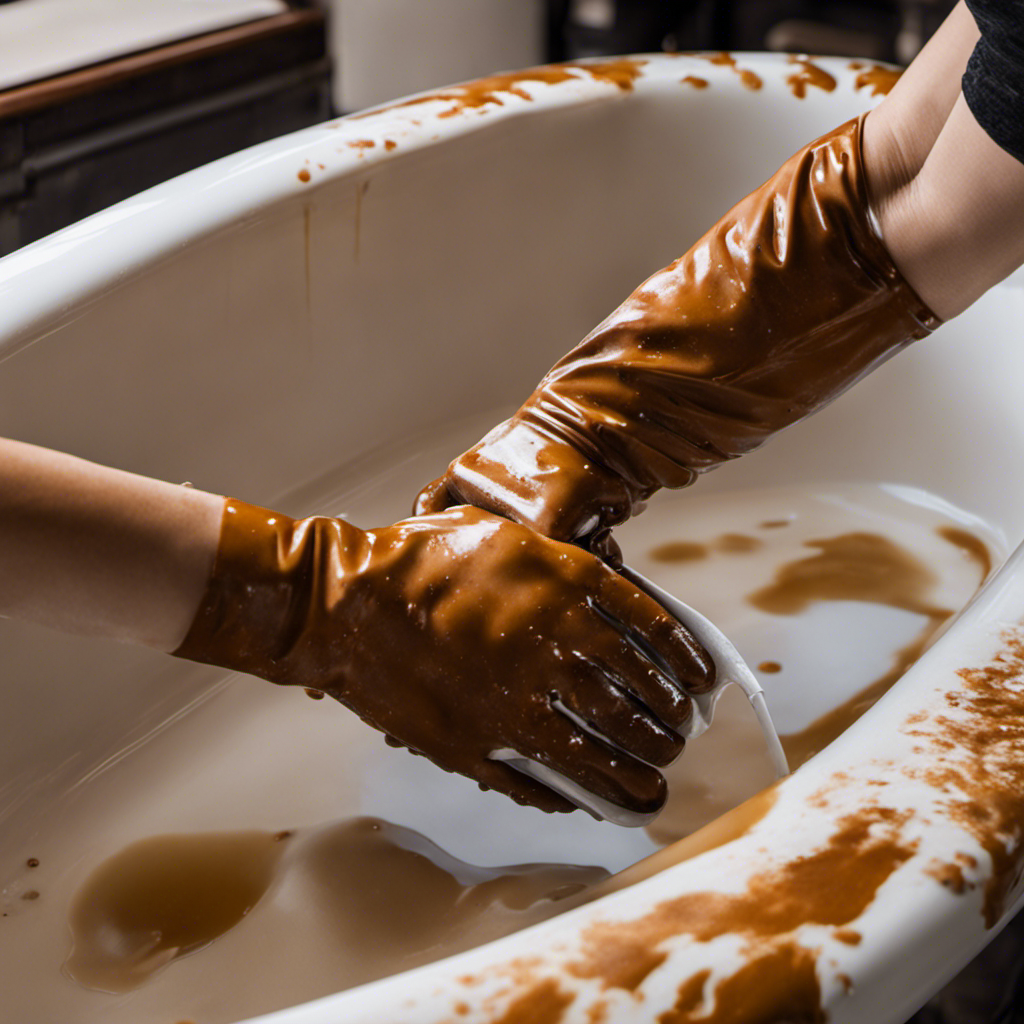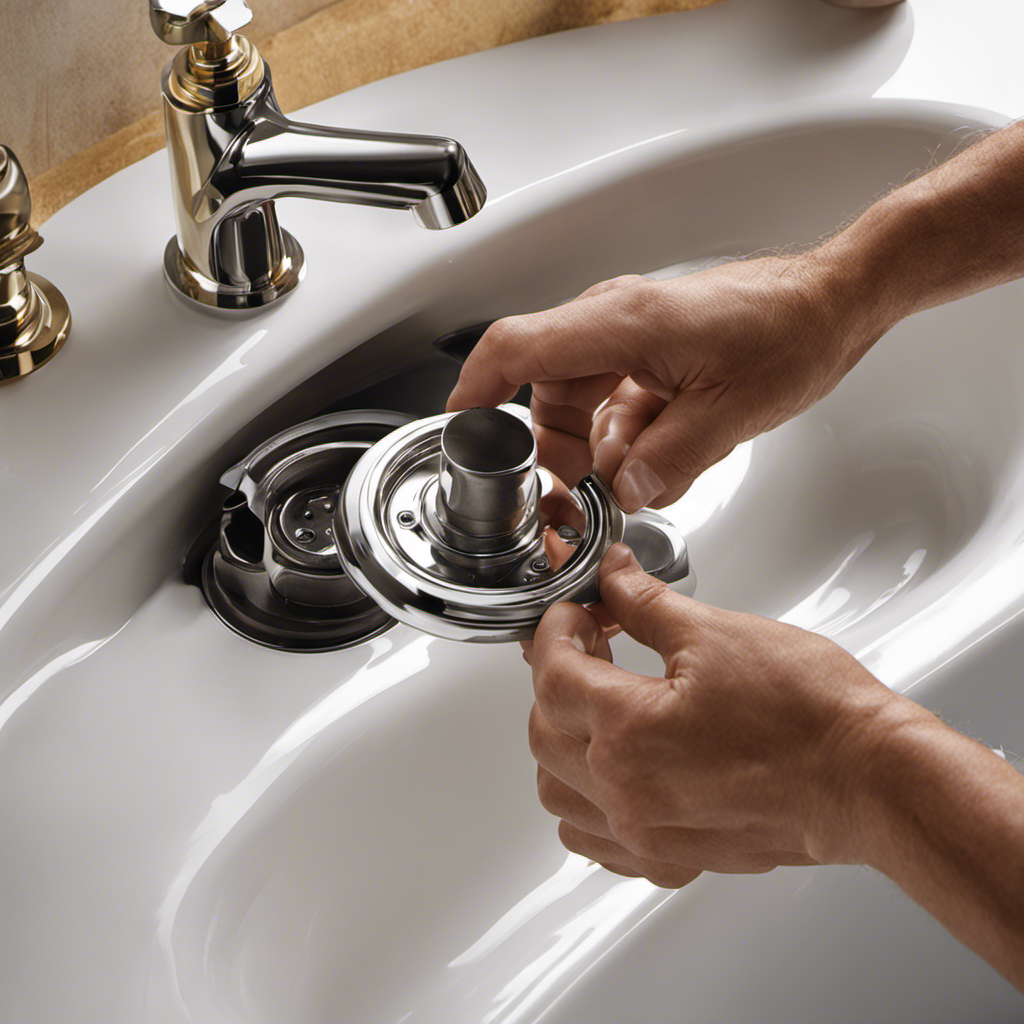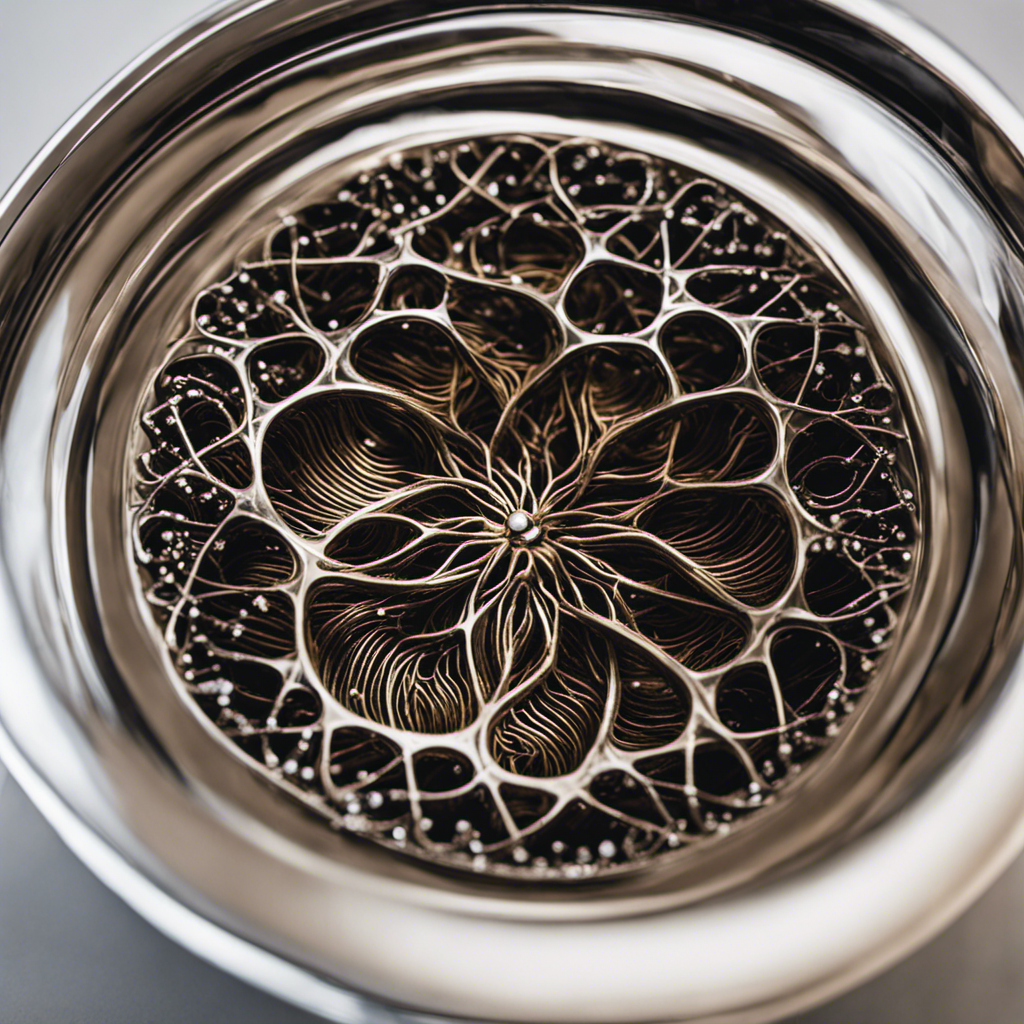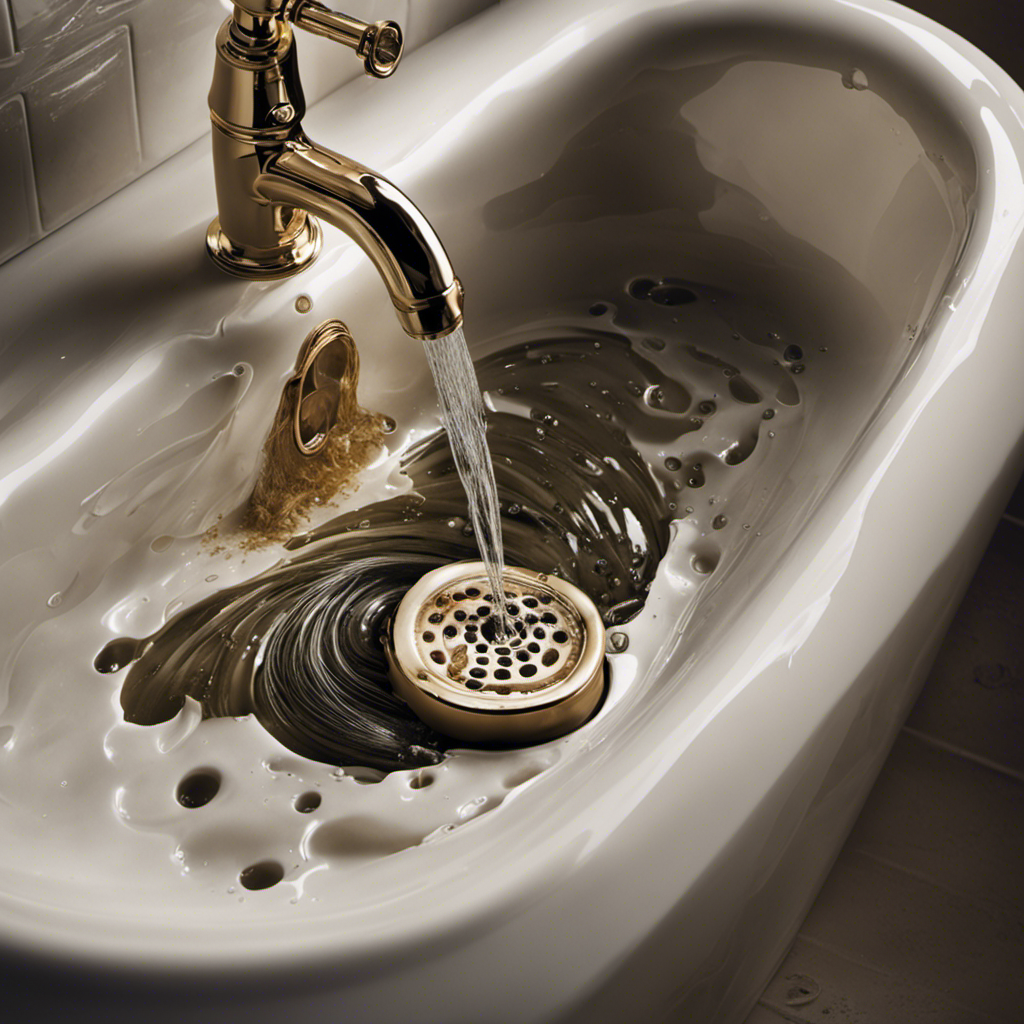Have you ever wondered why your bathtub drain is frustratingly slow? Well, you’re not alone. In fact, did you know that a staggering 80% of homeowners experience this issue at some point?
Thankfully, there are common causes and practical solutions to address this annoying problem. In this article, I will explore the reasons behind a slow bathtub drain, the signs to look out for, and both do-it-yourself and professional methods to unclog it.
So, let’s dive in and get your drain flowing smoothly again!
Key Takeaways
- Accumulation of hair, soap residue, and debris in the drain pipe can cause a slow bathtub drain.
- DIY solutions like using baking soda and vinegar mixture, salt and boiling water, plunger, or drain snake can help unclog a slow bathtub drain.
- Professional methods such as chemical drain cleaners or calling a plumber with specialized tools like drain snakes and hydro jetting equipment can effectively unclog stubborn bathtub drains.
- Preventive measures like using a drain strainer, avoiding pouring grease or oil down the drain, regular cleaning of the drain stopper, and homemade drain cleaners can help maintain a fast bathtub drain.
Common Causes of Slow Bathtub Drains
One common cause of slow bathtub drains is that you’re not regularly cleaning the hair and debris out of the drain. Over time, hair, soap residue, and other debris can accumulate in the drain pipe and cause a blockage. This restricts the flow of water and leads to a slow draining bathtub.
Another potential reason behind a slow bathtub drain is a clog further down the line. This could be caused by a buildup of grease, mineral deposits, or even tree roots infiltrating the pipes.
To troubleshoot a slow bathtub drain issue, start by removing the drain cover and using a tool such as a drain snake to remove any visible clogs. If the problem persists, you may need to use a chemical drain cleaner or call a professional plumber to assess and fix the problem.
Signs and Symptoms of a Slow Bathtub Drain
You might notice that the water in your tub takes a while to disappear. This could be due to a common culprit: hair clogs. Hair easily gets trapped in the drain, slowing down the flow of water and causing blockages. When left unattended, these clogs can worsen over time, leading to complete drain blockage.
Regular drain maintenance is crucial to prevent this issue. By regularly cleaning your drain, you can remove any accumulated hair and debris, ensuring smooth water flow. One effective method is to use a drain snake or hair catcher to catch and remove hair before it reaches the drain.
Additionally, pouring boiling water down the drain can help dissolve any grease or soap residue that may contribute to clogs. Taking these simple steps can help prevent slow bathtub drains and keep your bathroom functioning smoothly.
DIY Solutions for a Slow Bathtub Drain
If you’re experiencing a sluggish flow of water in your tub, there are DIY solutions that can help improve the situation. Here are some natural remedies for slow drains that you can try:
-
Chemical-free solutions:
-
Baking soda and vinegar: Mix equal parts of baking soda and vinegar and pour it down the drain. Let it sit for 30 minutes and then flush it with hot water. This combination creates a fizzy reaction that helps break down debris and clear the drain.
-
Salt and boiling water: Dissolve half a cup of salt in a pot of boiling water and pour it down the drain. The hot water helps dissolve grease and the salt aids in scrubbing away residue.
-
Mechanical solutions:
-
Plunger: Use a plunger to create suction and dislodge any clogs. Make sure to cover the overflow drain with a cloth to create a seal.
-
Drain snake: Insert a drain snake into the drain and rotate it to break up and remove any obstructions.
Regular bathtub drain maintenance and using these natural remedies can help keep your drain flowing smoothly and prevent future clogs.
Professional Methods to Unclog a Slow Bathtub Drain
To effectively unclog a sluggish bathtub drain, professionals often utilize specialized tools and techniques. One method commonly used is the application of chemical drain cleaners. These cleaners are specifically formulated to dissolve hair, soap scum, and other debris that may be causing the blockage. They work by breaking down the clog and allowing it to be flushed away with water. However, it is important to use these chemicals with caution and follow the instructions carefully, as they can be harmful if mishandled.
If the clog persists or if you are uncomfortable using chemicals, calling a professional plumber is the next step. Plumbers have access to more powerful tools, such as drain snakes and hydro jetting equipment, which can effectively clear even the most stubborn clogs.
Transitioning to the next section, let’s explore preventive measures to maintain a fast bathtub drain.
Preventive Measures to Maintain a Fast Bathtub Drain
One effective way to maintain a fast bathtub drain is by regularly using a drain strainer to catch hair and other debris. This simple preventive measure can significantly reduce the risk of clogging and keep your drain flowing smoothly.
Here are some additional tips to help you with bathtub drain maintenance and prevent clogged drains:
- Avoid pouring grease or oil down the drain as they can solidify and cause blockages.
- Use a plunger to remove minor clogs before they become major issues.
- Regularly clean the drain stopper to remove any buildup or residue.
- Consider using a homemade drain cleaner made of baking soda and vinegar to keep your drain clear.
- In case of persistent clogs, use a plumbing snake or call a professional for assistance.
Conclusion
Well folks, who knew that a slow bathtub drain could cause such a commotion? But fear not, for I have just enlightened you on the common causes, signs, and solutions to this pesky problem.
Whether it’s a hairball party or a soap scum extravaganza, there’s always a way to tackle that sluggish drain. From DIY remedies to calling in the professionals, we’ve got you covered.
And don’t forget to take preventive measures to keep that drain fast and furious. Happy draining, my fellow bathtub enthusiasts!









